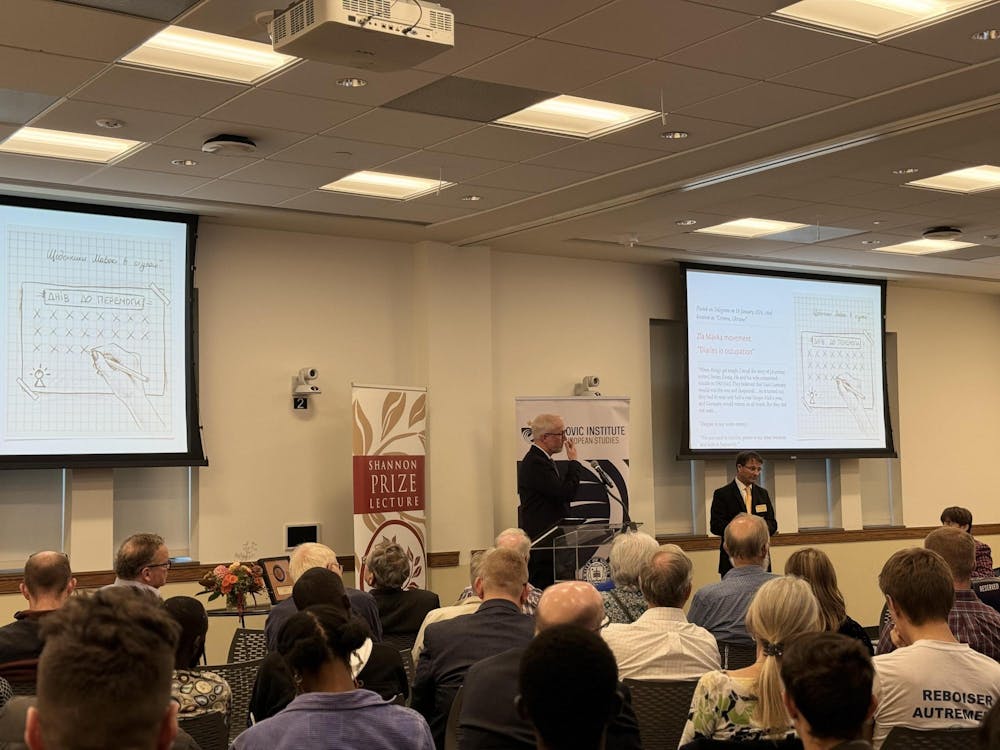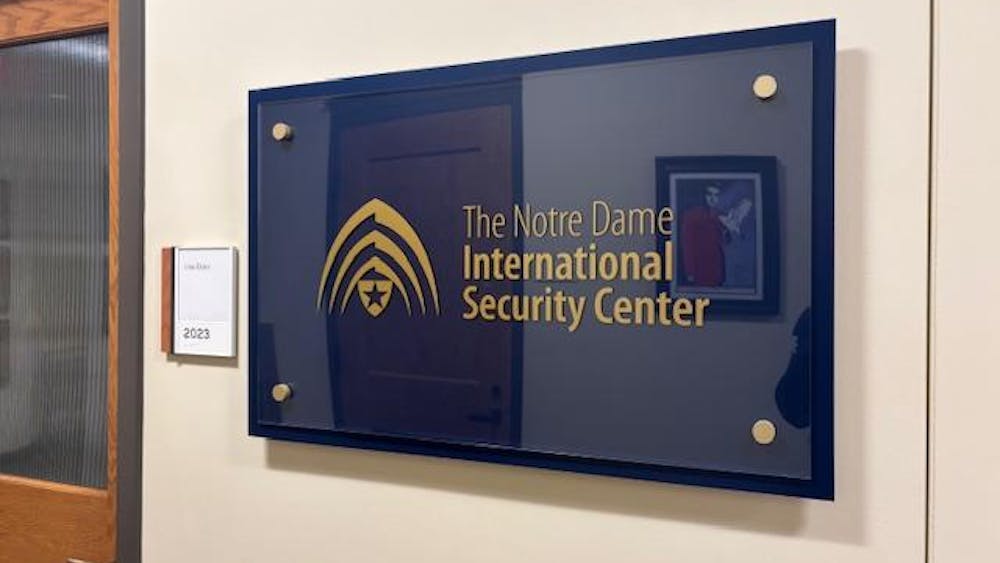On Thursday, Rory Finnin, author of “Blood of Others: Stalin’s Crimean Atrocity and the Poetics of Solidarity” visited the University of Notre Dame to receive the 2024 Laura Shannon Prize in Contemporary European Studies. Finnin also joined the Nanovic Institute to deliver a public lecture to faculty, students, staff and the general public about his award-winning book and knowledge on the current political situation regarding the Russo-Ukrainian war.
Finnin is a professor of Ukrainian studies at the University of Cambridge. His primary research interest is the interplay of culture and identity in Ukraine, but his broader research interests include nationalism studies, solidarity studies and cultural memory in the region of the Black Sea. Finnin is a graduate of Georgetown University (B.A.) and Columbia University (Ph.D.).
In his lecture, Finnin explained the profound significance of Crimea and shared untold stories of local resistance to Russian colonialism, past and present.
From 1995-1997, Finnin served as a U.S. Peace Corps volunteer in Ukraine, which sparked his interest in Slavic culture and history, even though the topic was previously foreign to him.
“Back in my childhood, I had a friend named Taras, [and I] tried some borscht earlier on, so I went into the country clueless,” Finnin said.
Working as a teacher and a social worker in a village in central Ukraine for two and a half years, Finnin quickly adapted to his new surroundings. During that period, he traveled throughout much of Ukraine and to other neighboring Slavic countries, which led to his passion for learning more about the region and its culture.
“Blood of Others: Stalin’s Crimean Atrocity and the Poetics of Solidarity,” Finnin’s second book is a study of the cultural and historical dynamics surrounding Joseph Stalin’s 1944 deportation of the Crimean Tatars.
“In different courses, libraries, reserves, I would learn more and more subterranean knowledge about this event that no one spoke of. This is like a lot of Stalinist trauma. You don’t see the text in the surface of a Stalinist traumatic event. Instead, it is often encoded. I wanted to understand those codes, and I would see them in Russian, Ukrainian and also the Turkish language. I would spend time learning Turkish and the Ukranian Tartar. So, the synopsis is — this is a book about all these different codes and one that hopefully gives a new form of cultural knowledge,” Finnin said.
The book explores how literature, poetry and the arts across multiple cultures — Crimean Tatar, Ukrainian, Russian and Turkish — played a crucial role in breaking the silence around the deportation. By examining various works of art, Finnin shows how these representations fostered empathy and solidarity for the displaced Crimean Tatars, despite Soviet efforts to suppress the truth.
Crimea is the ground zero of Russia’s war of aggression against Ukraine. Russia first invaded Ukraine in 2014 and again occupied it in 2022.
Russia’s occupation of Ukraine is the bloodiest armed conflict in Europe since the second World War. This acted as a sense of inspiration for Finnin.
“This Russian war against Ukraine and against all of free Europe began with Crimea, and it will end with Crimea — with its liberation,” Ukrainian President Volodymyr Zelensky said in a public hearing.
In his lecture in Jenkins Hall, Finnin aimed to give an unfiltered view of what Crimea is and share his optimism about the war itself, emphasizing how Russian aggression can be defeated.
“I think Russian aggression should be talked about and not Russia,” Finnin said. “I think there is a certain string of sentiment in Russian federation that needs to be defeated.”










